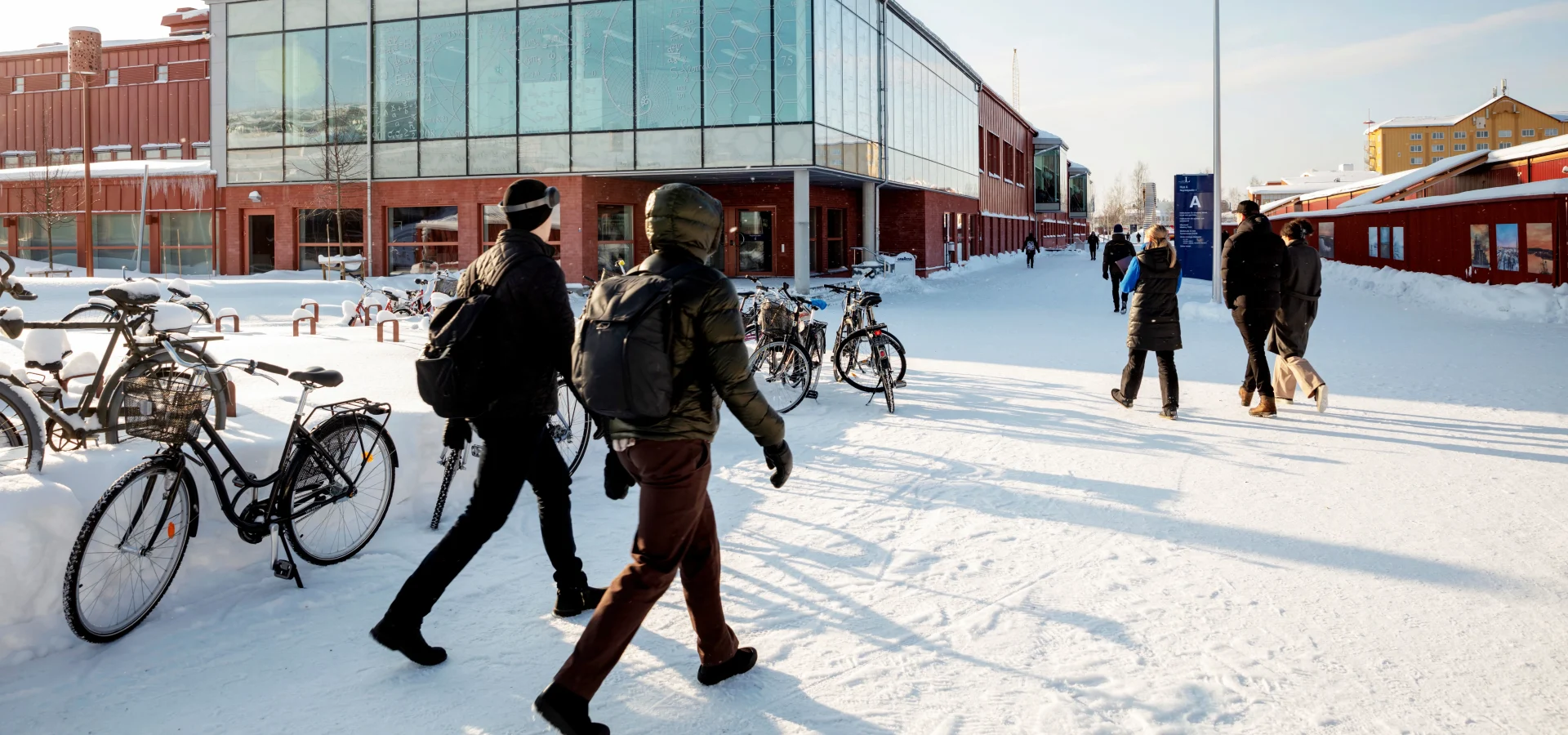
Type of Employment Full-time
Job position PhD student
Work model On location
Application due date 15 October 2025
PhD in architecture - urban planning policy for walking
Luleå, Sverige
Type of Employment Full-time
Job position PhD student
Work model On location
Application due date 15 October 2025
Are you the one?
Luleå University of Technology is growing rapidly with world-leading expertise in several research areas. We shape the future through innovative education and groundbreaking research results, and based on the Arctic region, we create global social benefits. Our scientific and artistic research and education are conducted in close collaboration with international, national and regional companies, public actors and leading universities. Luleå University of Technology has a total turnover of almost SEK 2.1 billion per year. We are currently 1,900 employees and have 18,700 students.
In the coming years, billions of kronor will be invested in Norrbotten and Västerbotten in major projects aimed at a more sustainable society nationally as well as globally. Luleå University of Technology is involved in several of these highly topical research projects and the social transformation that follows. We have a wide range of programs to match the skills that are in demand. We hope you will help us build the sustainable businesses and communities of the future.
The Department of Architecture and the Built Environment (ABM) researches and develops knowledge and innovative proposals on how planning processes can be further developed, and how urban and built environments as well as buildings can be designed to better meet society's needs and aspirations. The department has about 30 employees (teachers, researchers and PhD students).
We want to strengthen our research group within the research project "Planning for walking" (funded by the Swedish Transport Administration and others) with a PhD student who will gather and utilize knowledge at the local level (from both municipal and private actors) and identify core knowledge and effective strategies to increase the prevalence of walking as a means of transport and make it safer.
Subject description
The research subject of architecture encompasses building design, urban design and transportation planning, where aesthetic design combines functional, technical, practical and economic aspects related to people, sustainability, landscape, and the built environment.
Project description
From a sustainability, climate and health perspective, traveling on foot is a key mode of travel to achieve overall national and international goals. Walking also has a central and clear role and function in daily travel. The form of the built environment - its planning and policies - plays a key role in enabling or inhibiting urban outdoor activities such as walking. Our streets and public spaces can make it more attractive for people to walk, or they can discourage people from going out. At the same time, different groups have different requirements, needs and motivations. Similarly, different built environments are more or less adapted to the requirements of individual groups. Therefore, to achieve improved and increased walkability, urban planning policies and local guidance must be tailored to local realities and at the same time include goals and visions that encompass the whole population.
This project is part of the "Planning for Walking" research program (funded by the Swedish Transport Administration) and will study what the political and professional vision, as well as the practical reality, is for walking from a policy perspective in Sweden. This involves studying local and national documents but also the local processes, in relation to international standards and best practice.
Work tasks
A PhD position involves both theoretical and practical work. As a PhD student, you will be trained in scientific work in the form of writing and publishing scientific articles and attending national and international conferences. You will also take a number of doctoral courses. In addition, you may have the opportunity to try out the role of teacher and/or work on other research projects as a departmental position.
Qualifications
Applicants should have a Master's degree with specialization in Architecture, Civil Engineering Architecture/Technical Architecture, Civil Engineering, Sustainable Urban Development or other specialization deemed equivalent.
Furthermore, a good ability to work independently and interest in working interdisciplinary is required.
The position requires good knowledge of English, as the research results will be presented at international conferences and in English-language scientific journals. Knowledge of Swedish or another Scandinavian language is essential. Having a driving license for a car is meritorious.
For further information on specific doctoral training see: Curricula for doctoral training in the Faculty of Engineering.
Information about the program
Employment as a doctoral student is limited to 4 years, teaching and other departmental duties may be added up to 20% of full time. The place of employment is Luleå, but travel and short stays elsewhere may occur.
As a doctoral student, you will receive a salary according to a union-negotiated salary scale. The doctoral student salary scale is revised annually in conjunction with the general salary review. In addition to the annual revision, there is also a salary increase in connection with the passing of the licentiate degree / mid-seminar.
For further information, please contact David Chapman, david.chapman@ltu.se, 0920-491380, 070-2641776
Trade union representative:
SACO-S Diana Chroneer, 0920-49 2037 diana.chroneer@ltu.se
OFR-S Marika Vesterberg, 0920-49 1721 marika.vesterberg@ltu.se
How to apply
We prefer that you apply for the position via the application button below where you attach a cover letter, CV/resume and copies of verified diplomas. Please mark your application with the reference number below. Both the application and the diplomas must be written in Swedish or English.
Deadline for applications: October 15, 2025
Reference number: 3868-2025
